Alba truffles or Yubari Melons? Are luxury foods worth the price?
Our food columnist takes a look at super gourmet foods that you could indulge in, if you don’t mind spending vast sums of money to buy them...
What are the most luxurious foods in the world and are they all they are cracked up to be? Do they transport you to that state of sublime ecstasy where ‘every prospect pleases and only Man is vile’?
While no two connoisseurs will see eye to eye on this contentious subject, here is my bucket list of super gourmet foods you could indulge in if you were appointed as the Sultan of Brunei’s party planner or his personal shopper. Obviously, you’d need to use his Kryptonite credit card.
A touch of Japan
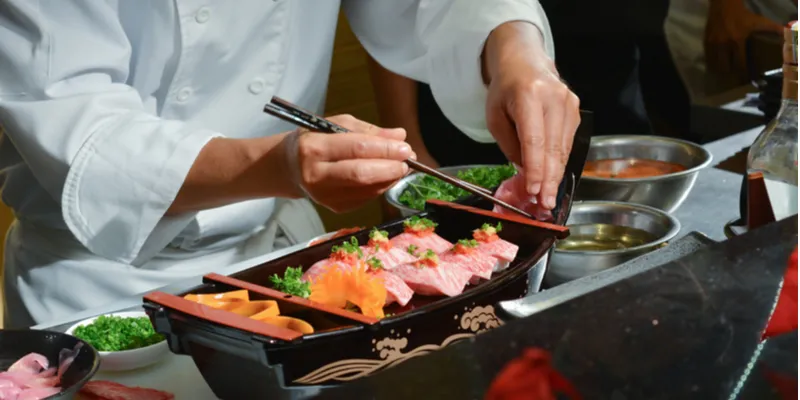
Super luxury food from Japan
Kobe beef, the densely marbled, divine food for the gods, no pun intended, is priced at US$ 1600 a kg. The meticulous rearing method is what makes it so expensive, since in order to qualify for the prestigious Wagyu mark (Wa = Japanese, gyu = beef), the cattle have to be reared and fed according to strict guidelines.
Breeding cattle and pregnant cows are grazed on luxuriant organic pasture while young calves have a personal dietician who earns substantially more than Angelina Jolie’s fitness coach. Wannabe Wagyu calves are fed by hand with a milk replacement formula and get warm woollen jackets to wear when the temperature drops.
After seven months of kid glove treatment they are sent to a fattening farm where they are fed rice straw, whole crop silage and specific nutritional supplements. They get names, as opposed to numbers, a birth certificate identifying their bloodline and no, they don’t drink beer or enjoy a daily massage: that’s just legends spouted to gullible foreigners. When they get to the optimum weight of 700 kgs, it’s dinner time.
Vive la France
A price of $ 2000 seems like a lot to pay for a mushroom even if your surname is Bezos. It really does, dude. October marks the start of the white-truffle season when these rare fungi find their way onto menus designed to capture the imagination of the world’s most jaded palates.
One of Daniel Boulud's (owner of Per Se) set pieces involves the rapper Puff Daddy who told the chef to "shave it" onto his risotto. Boulud was only too happy to oblige since every slash of the razor meant another $50 on Puff’s bill.
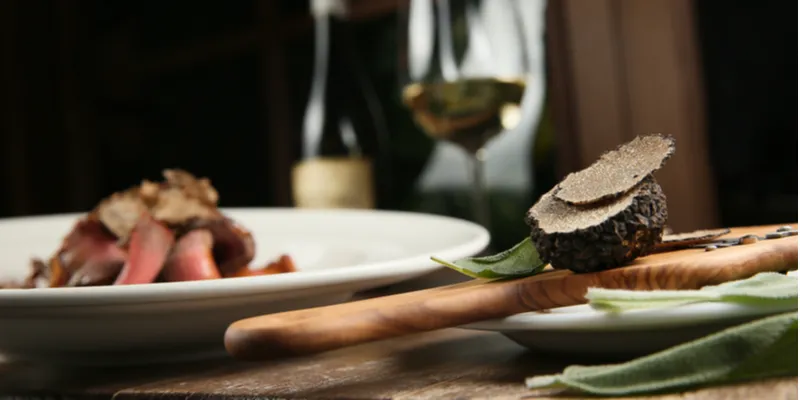
Truffles are rare and expensive
Truffles are rare and while cheaper black truffles are found in Périgord, France, the delicately flavoured white ones from Alba in the Piedmont region in Italy are only available for a couple of months where they must be foraged by special pigs. Incidentally every year the quality and the numbers drop thanks to the indiscriminate use of fungicides.
The other challenge is grabbing the truffle before the pig gobbles it up so truffle hunters have taken to using Belgian Malinois hounds that have a refined sense of smell but prefer Kobe beef to mushrooms, if you catch my drift?
Think of how exciting and in a way, primitive that is: actually, using an animal to forage for your dinner. Truffles are the perfect luxury commodity, precious and getting more so all the time.
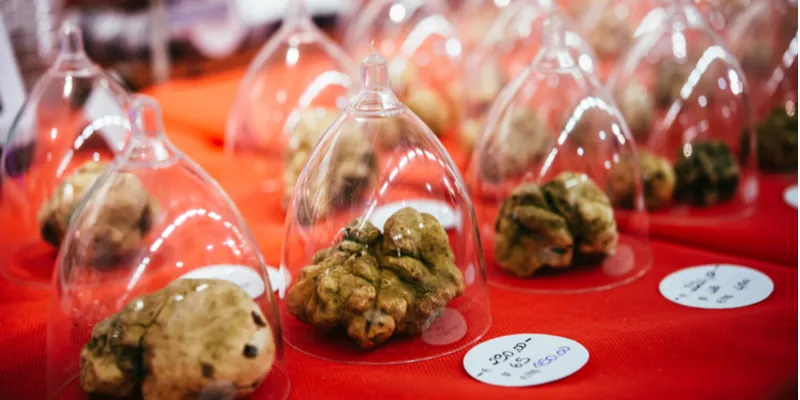
Alba truffles
Whether they are worth it depends on whether your wallet can keep pace with your palate…
If truffles could be put into mass production and sold in supermarkets, they'd be cheaper, but their mystique would evaporate, and with it much of their value to the world. When we have something exclusive to dream of, boast about and savour in a world where practically everything is available if you have the cash, that star quality is exciting.
You can pick up an Audemars Piguet limited edition watch at an outlet mall or a Ferrari on eBay. But you can't get Alba truffles without a truffle expert and importer like John Magazino on your speed dial.
Milk at a price
Donkeys don’t just bray or carry people and cargo; they also produce milk which can be processed into cheese. While it may not sound very appetising, the Serbian makers claim it is the most delicious cheese in the world, and they charge accordingly.
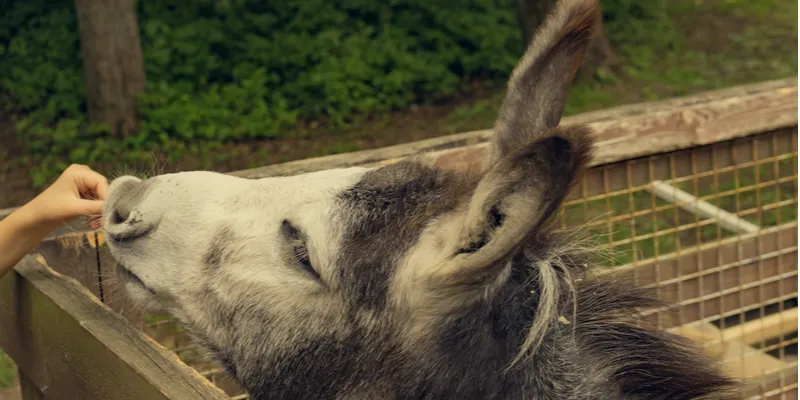
Cheese made from donkey's milk is delicious
For someone like Novak Djokovic it probably costs him a love game at Wimbledon. It is only made from the 100 or so Balkan donkeys of the area around the Zasavica River, in western Serbia and 25 litres of milk is required to make one kilogram of smoked cheese.
Priced at 700 Euros a kg, the taste has been described as, “a heavy nutty, sweetly powerful taste on the front of the palate, with a tomatoey-salty Parmesan like finish, that physically numbs the mouth and saliva glands.”
King of fruits
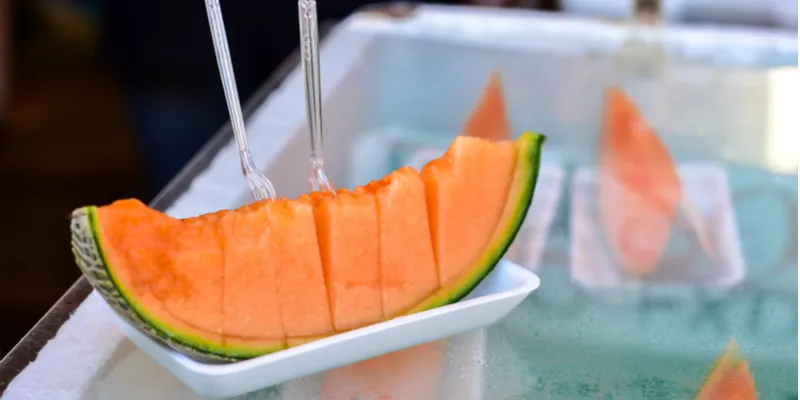
The Yubari melon is the king of melons
The Yubari King melon is a cantaloupe hybrid, combining the sweetness of Earl’s Favorite, and the spiciness of the Burpee. The hybrids are grown exclusively in greenhouses in Yubari, on Hokkaido Island, Japan. Their unique taste is a mélange of the mellow warmth of the Earl’s Favorite with delicately sweet grace notes from the Burpee.
Those with sophisticated taste buds will enjoy cantaloupe on the front of the tongue, watermelon on the middle, and the lingering tartness of pineapple in the aftertaste. An average melon sells for $50, but the first, and most perfectly spherical fruits of the year can go for a cool $26K at auction. The Parma ham it may accompany will be a lot cheaper.
Can luxury food go desi?
Is it worth buying any of these luxury foods and will they fit in with desi khana? Perhaps not, since all of the above are rare, exclusive and ever-so-slightly snobbish.
If you are one of the fortunate few who gets to enjoy one of these magnificent super luxury foods, don’t bother pairing it with biryani or butter chicken; just pour yourself a glass of Romanee Conti, swirl it around your glass and then savour the feast. Bon appétit.










